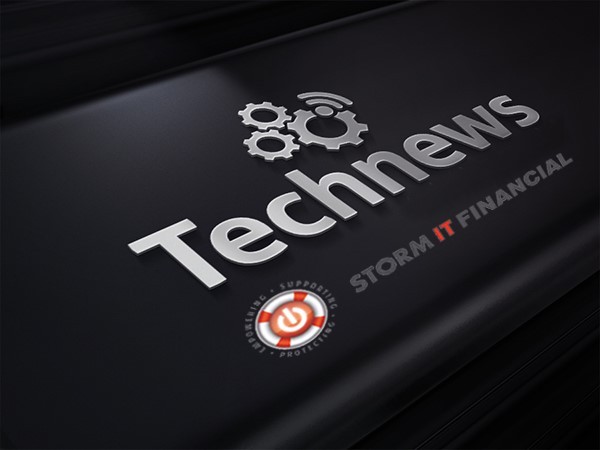FinTech Trends Newsletter Week 23rd April – 27th April 2018

Cloud, backup and storage devices: How best to protect your data

We are producing more data than ever before, with more than 2.5 quintillion bytes produced every day, according to computer giant IBM. We have never been so connected through smart phones & devices, smart watches, laptops and all sorts of wearable technologies inundating today’s marketplace. We are also continuously sending and receiving data over our networks. This unstoppable growth is unsustainable without some kind of smartness in the way we all produce, store, share and backup data now and in the future.
In the cloud – Cloud services play an essential role in achieving sustainable data management by easing the strain on bandwidth, storage and backup solutions. But is the cloud paving the way to better backup services or is it rendering backup itself obsolete? And what’s the trade-off in terms of data safety, and how can it be mitigated so you can safely store your data in the cloud? The cloud is often thought of as an online backup solution that works in the back- ground on your devices to keep your photos and documents, whether personal or work related, backed up on remote servers. In reality, it connects people together, helping them store and share data online and even work together online. It also makes your data ubiquitous, so that if you lose your phone or laptop or your device fails you simply buy a new one, sign in to your cloud account & voila! – all your data are on your new device in a matter of minutes.
Do you really back up your data? – An important advantage of cloud-based backup services is also the automation and ease of use. With traditional backup solutions, such as using a separate drive, people often discover, a little too late, that they did not back up certain files. Relying on the user to do backups is risky, so automating it is exactly where cloud backup is making a difference. Cloud solutions have begun to evolve from online backup services to primary storage services. People are increasingly moving from storing their data on their device’s internal storage (hard drives) to storing them directly in cloud-based repositories such as Microsoft’s Azure, Amazon’s AWS, Google Drive, Apple iCloud and Dropbox. If your entire workspace is in the cloud, is backup no longer needed? No.
In fact, backup is more relevant than ever, as disasters can strike cloud providers themselves, with hacking and ransomware affecting cloud storage too. Backup has always had the purpose of reducing risks using redundancy, by duplicating data across multiple locations.The same can apply to cloud storage which can be duplicated across multiple cloud locations or multiple cloud service providers.
Privacy matters – Yet beyond the disruption of the backup market, the number-one concern about the use of cloud services for storing user data is privacy. Data privacy is strategically important, particularly when company, investor, client and customer data are all involved. When it comes to technology, encryption tools protecting your sensitive data have actually been around for a long time. Encryption works by scrambling your data with a very large digital number (called a key) that you keep secret so that only you can decrypt the data. Nobody else can decode your data without that key. Using encryption tools to encrypt your data with your own key before transferring it into the cloud is a sensible thing to do. Some cloud service providers are now offering this option.
Share vs encryption – But if you store data in the cloud for the purpose of sharing it with others, then you might require a process to distribute encryption keys to multiple participants. People you share data with would need to get the key too, in some way or another. Once you share that key, how would you revoke it later on? More importantly, how would you keep using the collaboration features offered by cloud providers, such as MS Office 365, while working on encrypted files? These are the key challenges ahead for cloud users, providers and vendors like Storm IT Financial. Solutions to those challenges are truly be game-changing for users of the Cloud.
For further advice & assistance about Cloud (Public & Private) & Data Management, contact Storm IT Financial and find out more information on Hedge Fund, Asset Management, Private Equity & Alternative Investment, back up, disaster recovery, cyber security & firewall solutions, security education seminars, Regulatory & Compliant Solutions , data storage, SaaS, helpdesk support & IT Services.

Storm IT Financial FinTech News & Trends picks: Week 23rd April – 27th April 2018
Migrating your apps, data and infrastructure to Microsoft Azure is easier than ever
Cloud computing is fundamentally changing IT and transforming businesses at an unprecedented pace:
Duff & Phelps: Regulatory Focus – April 2018
Duff & Phelps’ UK Compliance & Regulatory Consulting team, provide synopsis of the news & publications issued by the FCA during March 2018:
Nasdaq is open to becoming cryptocurrency exchange, CEO says
Once the regulation is smoothed out & the space “matures”, Nasdaq would consider becoming a digital currency exchange, the company’s CEO says:
https://www.cnbc.com/2018/04/25/nasdaq-is-open-to-becoming-cryptocurrency-exchange-ceo-says.html
A Former Top Wall Street Regulator Turns to the Blockchain
Ex Goldman banker, Gary Gensler, is plunging into the world of the blockchain, the data-tracking technology introduced by Bitcoin:
https://www.nytimes.com/2018/04/22/technology/gensler-mit-blockchain.html
There’s More To ‘Full’ 5G Than You Think
It appears everyone is talking about the impending launch and availability of 5G networks and devices:
Top European banks gather to debate the merits of AI
NextGen Banking London 2018 conference on 17 May will bring together financial services practitioners to explore what AI means for banks:
https://www.finextra.com/newsarticle/32015/top-european-banks-gather-to-debate-the-merits-of-ai
Deutsche Bank looks to big data for stock price clues
DB’s research unit unveils an interactive web tool that uses big data in an effort to quantify the importance of intangibles, on stock prices:
https://www.finextra.com/newsarticle/32023/deutsche-bank-looks-to-big-data-for-stock-price-clues
Artificial intelligence will wipe out half the banking jobs in a decade, experts say
Advances in AI and automation could replace as many as half the US’s financial services workers in 10 years:
What Facebook’s downfall will mean for the future of fintech
What is clear after the Facebook scandal is that fintech needs to redouble its efforts on data privacy:
Goldman Sachs Hires Crypto Trader Justin Schmidt toLead Digital Assets
GS hired Justin Schmidt as head of digital asset markets to help clients gain exposure to cryptocurrencies:
Citigroup Lists Multiple Job Openings for Certified Bitcoin Professionals
Citigroup is looking to hire people with a “Bitcoin Professional Certification”:
TSB vows to put things right
TSB says its teams “are working around the clock” to fix the IT issues “as soon as possible”:

